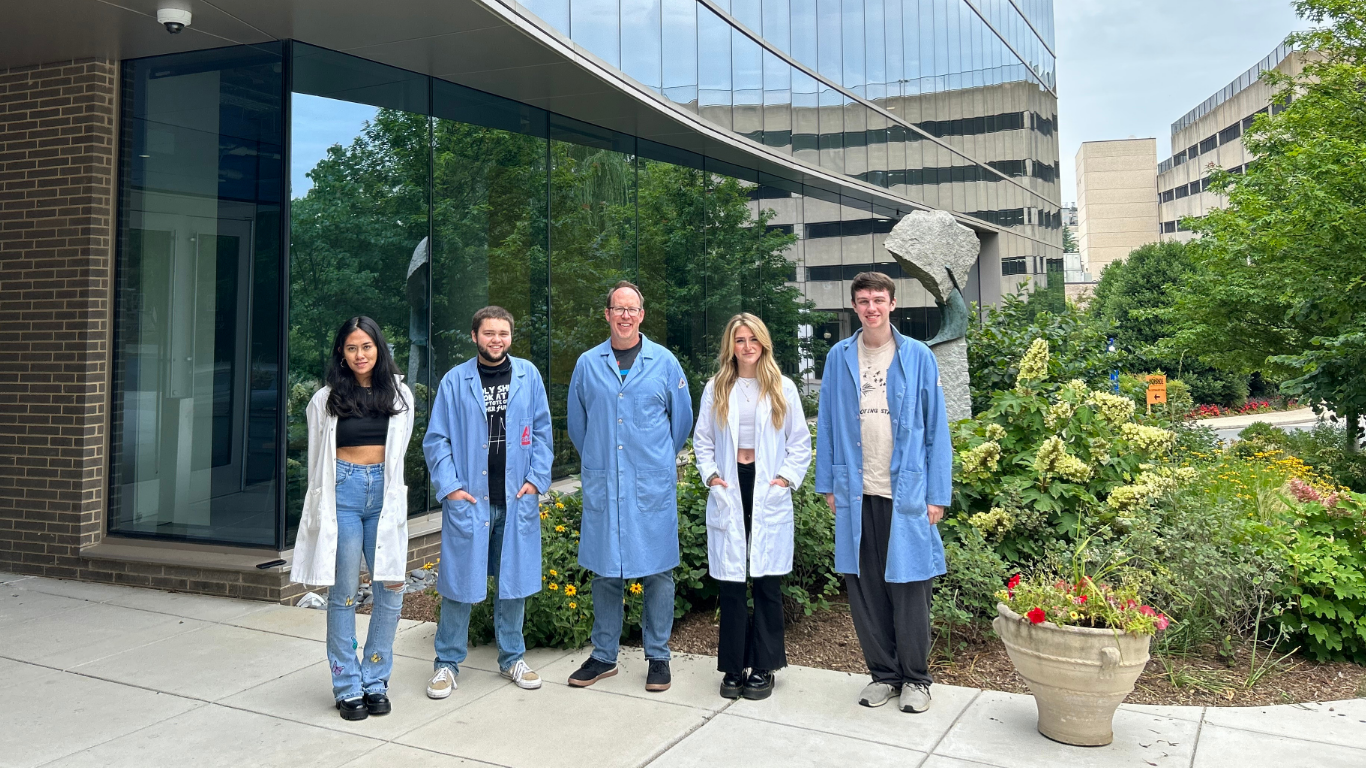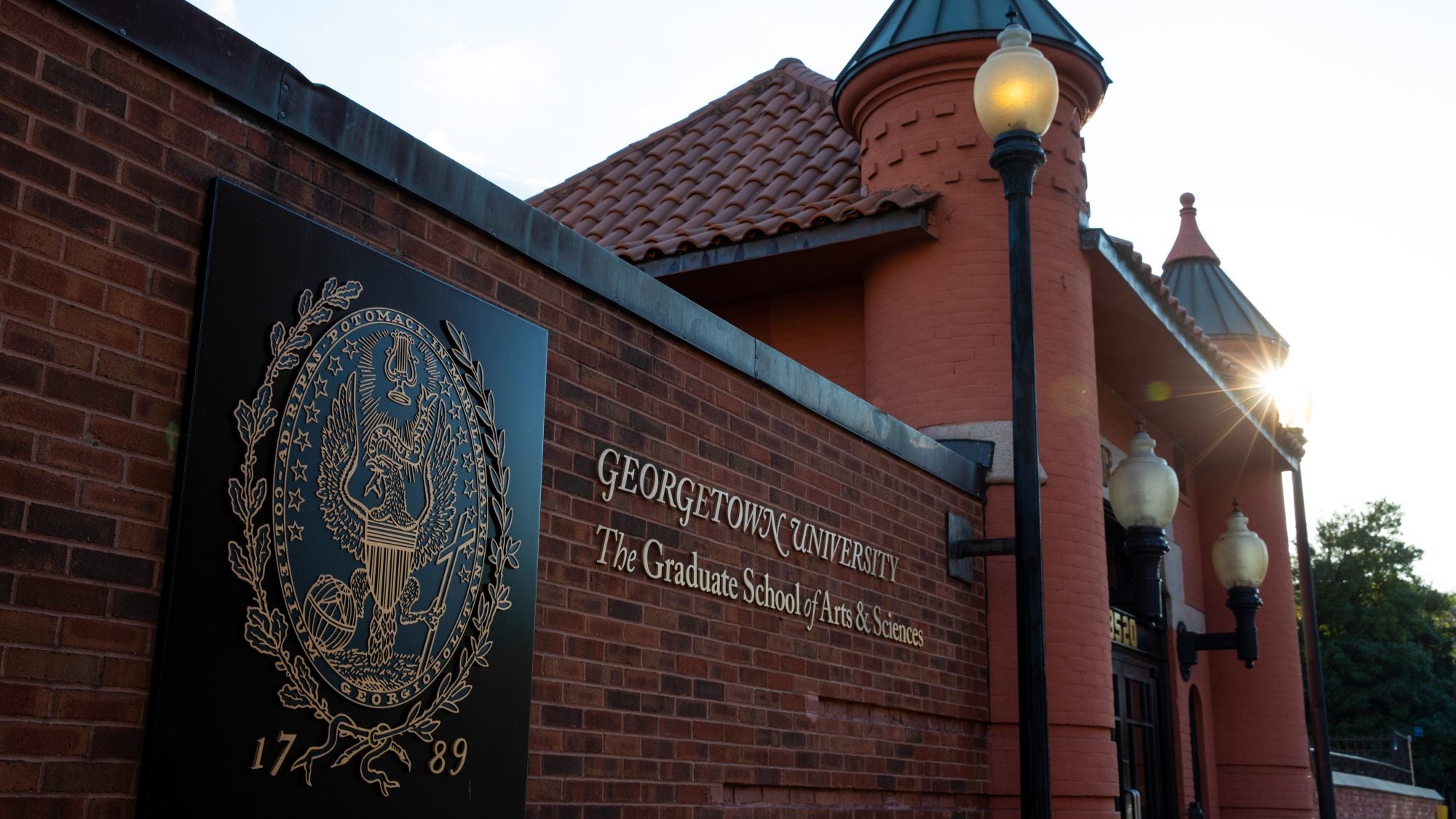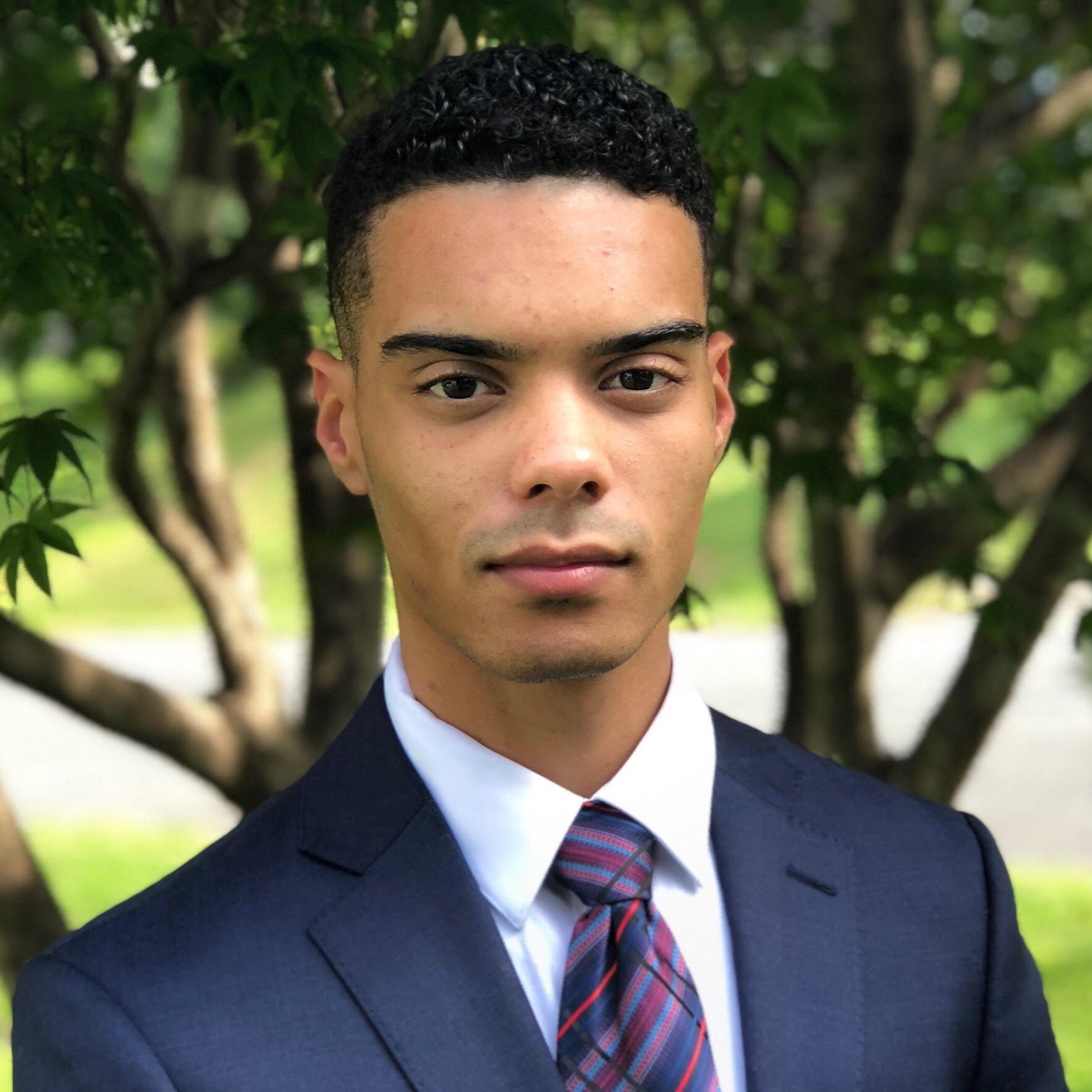A Curious Chemist Who Wants to Use Science for Good
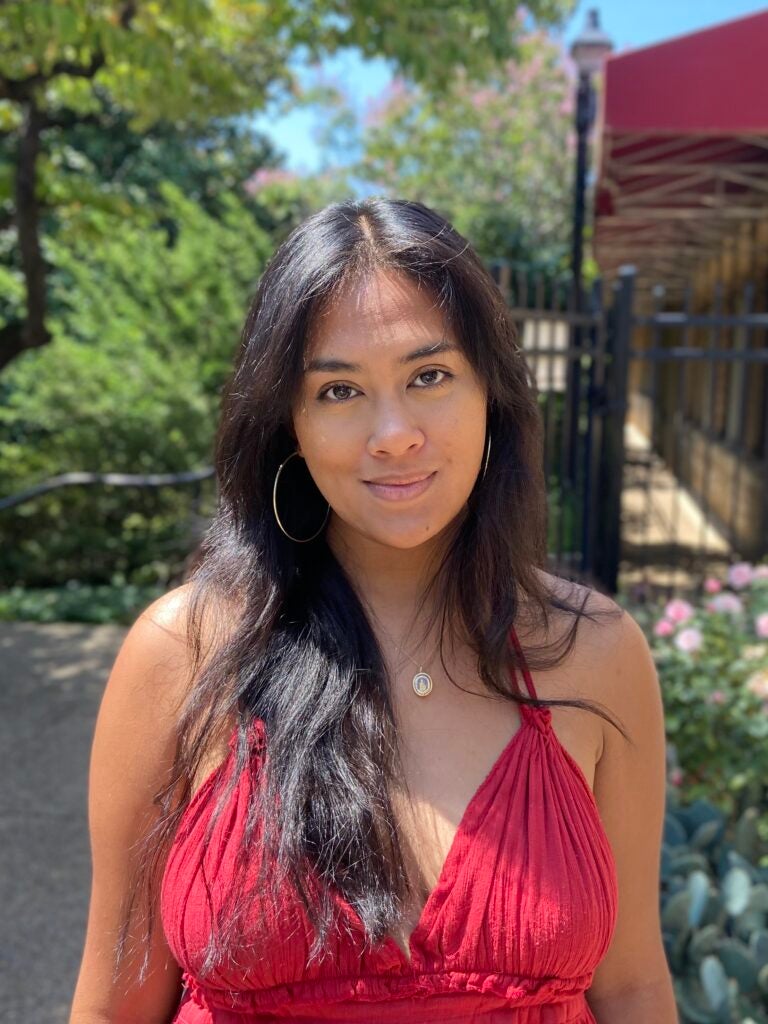
Mary Ruxsarash
Mary Ruxsarash (G’29) is a Washington, DC, native. Her mom was treated for bone cancer at Georgetown University Hospital a year before she was born.
“The staff worked hard to make sure she didn’t have to pay a lot out of pocket for her treatment,” said Ruxsarash. Her parents had only recently moved from Thailand and were still getting their bearings without the support of social services due to their immigration status.
Two decades later, she is the first in her family to earn a college degree.
When Ruxsarash decided that she wanted to pursue advanced studies, she chose to apply to Georgetown because of how the doctors and social workers had truly lived out the value of cura personalis – care of the whole person – toward her mom, but also showing care and compassion toward her family.
After she learned that the Department of Chemistry had successfully nominated her for the Patrick Healy Graduate Fellowship – designed to recruit students underrepresented in doctoral programs and awarded annually to a handful of outstanding students who want to pursue careers in academia – she felt a renewed sense of relief and motivation to enroll in the Ph.D. in chemistry program.
Weeding Out Seeds of Doubt
Ruxsarah’s journey to become a chemist began in high school, where she discovered an innate passion for the subject. However, she had no roadmap for how to pursue a degree. “My parents were OK with the idea of me not going to college because of how much application fees cost,” she noted.
Ruxsarash’s curiosity for chemistry, however, pushed her to pursue and earn a bachelor’s degree in chemistry from American University, where she juggled 10 jobs over the course of four years as a full-time student.
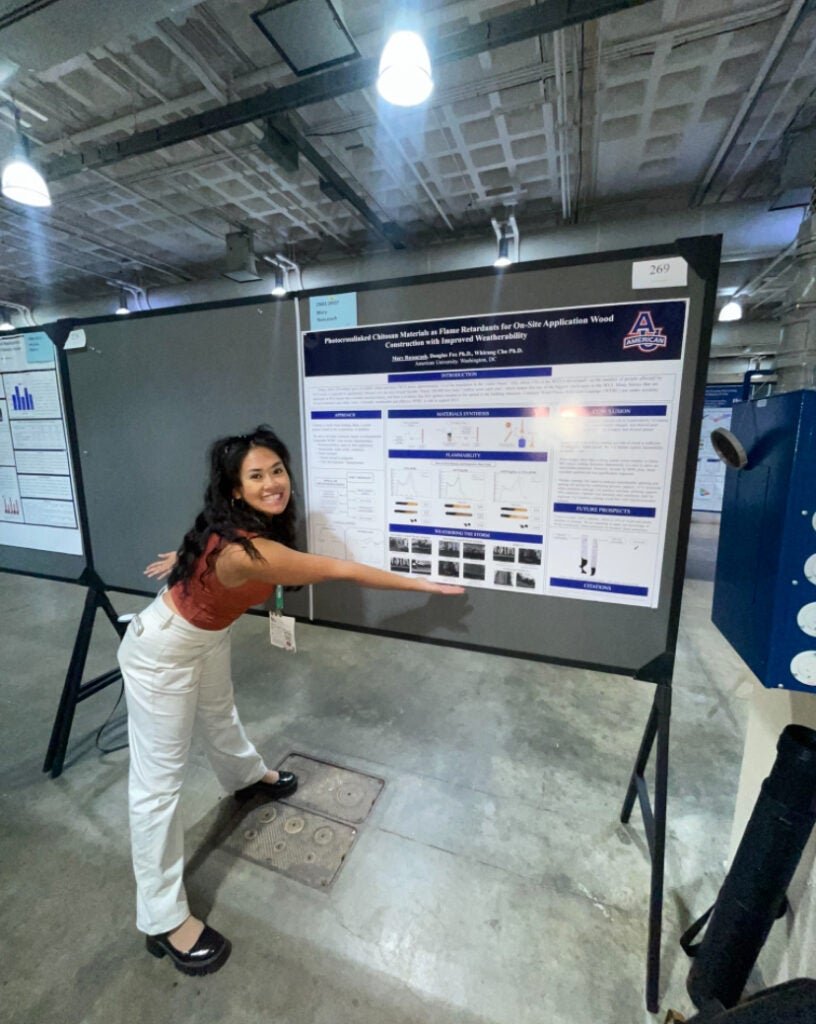
Ruxsarash at 2023 Materials Research Society fall meeting in Boston, MA with poster on Chitosan-based wood flame retardant coatings for on site application and treatment
Throughout college, her mentors encouraged her to pursue doctoral studies in chemistry. They felt that she’d be able to successfully build on the research she’d developed related to polymers as an undergraduate. However, Ruxsarash was unsure if it was the path she wanted to pursue, particularly after navigating the financial cost of undergraduate studies on her own.
She thought she’d end up working in the federal sector in a scientific lab, and interned for two summers at the National Institute of Standards and Technology (NIST). However, she discovered inefficiencies in the amount of time it took to get things done there, and decided that if she truly wanted to affect change for a better environment, she needed to chart a different path.
During the graduate application process, Ruxsarash felt considerably more passion and excitement from the Georgetown faculty whom she’d be working with compared to other schools.
On two separate occasions, first at Georgetown’s Soft Matter Conference in spring 2024 and then during a Graduate School campus visit, Ruxsarash was approached by Chemistry Department faculty who showed a keen interest in her as an applicant and her research interests, which, she said, was a bit overwhelming.
Additionally, with the financial support of the Healy fellowship, Ruxsarash knew she’d be able to solely focus on studying for her classes and conducting research without the stress of needing to live paycheck to paycheck as she’d done before.
Using Science for Good
Within chemistry, polymers, which are long molecules from chains of smaller identical molecules, have always intrigued Ruxsarash, including how easy it is to change their properties. She came to Georgetown hoping to work with Professor Nagarjuna Gavvalapalli, whose primary focus is also polymers.
“They’re very easily tweaked to change their properties,” says Ruxsarash. “When you add something to the big chain, or change the chain or take something away, it changes the properties, applications and the fundamental use of the polymer. They’re these stretchy things that look really cool, too.”
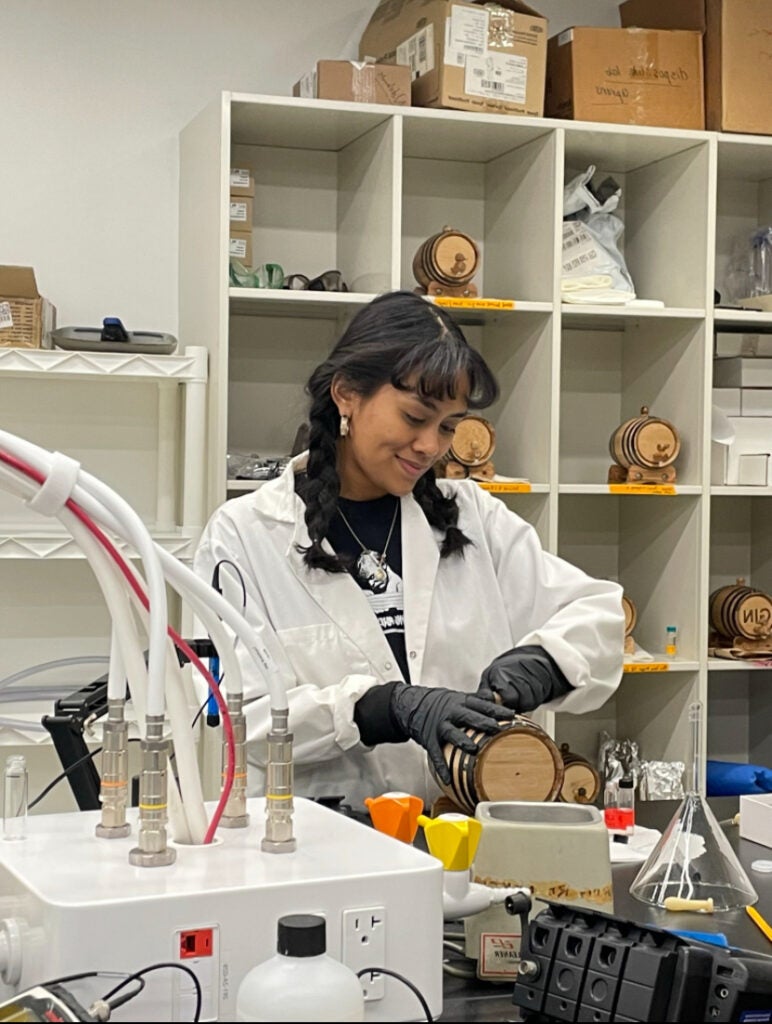
Ruxsarash in a lab conducting data collection aging gin in barrels to monitor molecules responsible for change in taste and smell (2022)
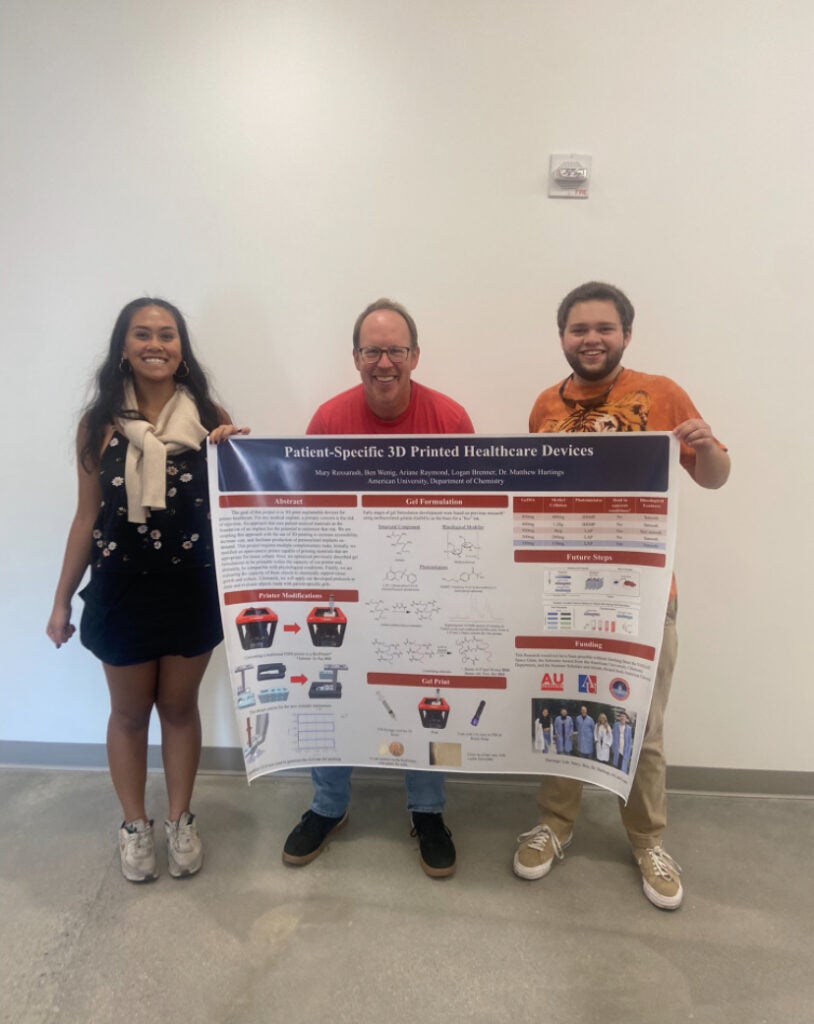
Ruxsarash (left) holds poster with mentor and classmate at AU Summer Undergraduate and Graduate Experiences in Research event (2023)
In her studies, Ruxsarash wants to take an interdisciplinary approach to integrate polymers and environmental chemistry into her research to use science for good in consumer products, she says. She wants to create products that are environmentally friendly, accessible and affordable to the public.
For example, she believes that utilizing polymers to 3D print (also called additive manufacturing) certain healthcare devices for patients who need them would be a value-added to the market. In fact, this was a project she worked on in her undergraduate studies at American.
“Although the upfront costs of a 3D printer capable of this may be high,” says Ruxsarash, “long term, it may be able to lower costs for patients due to the reduced labor and assembly costs.”
Ruxsarash hopes that her research will bring her joy, contribute something new to the field of chemistry and make others’ lives better. She is looking forward to taking a robust set of classes in the first few years of the doctoral program, including inorganic chemistry, stereochemistry and spectrometric methods this fall.
“The people in my program that went to bigger schools have taken a lot more elective classes than was offered at my institution,” said Ruxsarash. “I am looking forward to learning and feeding my curiosities.”
Ruxsarash wants to inspire others to pursue their dreams, whether it is a Ph.D. or something else. As someone who still deals with imposter syndrome, she encourages others to reframe their perspective from a negative to a positive.
“Having imposter syndrome just means that you recognize that you don’t know everything, and I think that’s a good thing. Once you get to a point where you are well-versed in your field, you are valued there more because you’re bringing an entirely different perspective in.”
